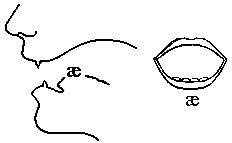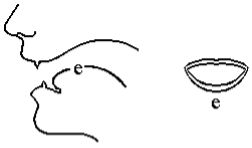- Bài Tập Chuyên Sâu Tiếng Anh 9 Unit 1 Local Environment Có Đáp Án
- Bài Tập Chuyên Sâu Tiếng Anh 9 Unit 2 City Life Có Đáp Án
Bài tập chuyên sâu Tiếng Anh 9 unit 1 Local environment có đáp án được soạn dưới dạng file word và PDF gồm 21 trang. Các bạn xem và tải về ở dưới.
UNIT 1. LOCAL ENVIRONMENT
I. VOCABULARY
| Stt | Word | Type | Pronunciation | Meaning |
| 1 | artisan | (n) | /ˌɑːtɪˈzæn/ | thợ làm nghề thủ công |
| E.g. The hand-woven textiles were made by skilled local artisans.
Các loại vải dệt bằng tay được tạo ra bởi các nghệ nhân lành nghề tại địa phương |
||||
| 2 | attraction | (n) | /əˈtrækʃn | điểm hấp dẫn |
| E.g. Buckingham Palace is a major tourist attraction.
Cung điện Buckingham là một điểm thu hút khách du lịch lớn. |
||||
| 3 | community | (n) | /kəˈmjuːnəti/ | cộng đồng |
| E.g. Our aim is to serve the community.
Mục tiêu của chúng tôi là phục vụ cộng đồng. |
||||
| 4 | community helper | (n) | / kəˈmjuːnəti ‘helpə(r)/ | người phục vụ cộng đồng |
| E.g. Police officers work as community helpers, keeping our neighborhoods safe and peaceful.
Các sĩ quan cảnh sát đóng vai trò là người giúp đỡ cộng đồng, giữ cho các khu dân cư của chúng ta được an toàn và yên bình. |
||||
| 5 | craft | (n) | /krɑːft/ | nghề thủ công |
| E.g. My mother can do traditional craft like basket-weaving.
Mẹ của tớ có thể làm nghề thủ công truyền thống như là đan rổ. |
||||
| 6 | craftsman | (n) | /ˈkrɑːftsmən/ | thợ làm đồ thủ công |
| E.g. My uncle is a skillful craftsman.
Chú của tớ là một thợ thủ công lành nghề. |
||||
| 7 | craft village | (n) | /krɑːf ˈvɪlɪdʒ/ | làng nghề thủ công |
| E.g. Craft village development is now a good way to solve the poverty in rural areas.
Sự phát triển làng nghề thủ công hiện nay là giải pháp tốt để giải quyết tình trạng đói nghèo ở nông thôn. |
||||
| 8 | cut down on | (phr.v) | /kʌt daʊn ɒn/ | cắt giảm |
| E.g. The doctor told him to cut down on his drinking.
Bác sĩ khuyên anh ta cắt giảm uống rượu. |
||||
| 9 | delivery person | (n) | /dɪˈlɪvəri ˈpɜːsn/ | nhân viên giao hàng |
| E.g. I’m both a delivery person and a counter person.
Tôi vừa là nhân viên giao hàng, vừa là người bán hàng. |
||||
| 10 | electrician | (n) | /ɪˌlekˈtrɪʃn/ | thợ điện |
| E.g. We need to call in an electrician to sort out the wiring.
Chúng ta cần gọi thợ điện để sắp xếp hệ thống dây điện. |
||||
| 11 | facility | (n) | /fəˈsɪləti/ | cơ sở vật chất |
| E.g. My school is upgrading its outdoor play facilities.
Trường học của tôi đang nâng cấp các cơ sở vui chơi ngoài trời. |
||||
| 12 | firefighter | (n) | /ˈfaɪəfaɪtə(r)/ | lính cứu hoả |
| E.g. Having spent 17 years as a volunteer firefighter, he retired in 1999.
Sau 17 năm làm lính cứu hỏa tình nguyện, ông nghỉ hưu vào năm 1999. |
||||
| 13 | fragrance | (n) | /ˈfreɪɡrəns/ | hương thơm |
| E.g. This perfume has a light, fresh fragrance.
Loại nước hoa này có hương thơm nhẹ nhàng, tươi mát |
||||
| 14 | function | (n) | /ˈfʌŋkʃn/ | chức năng |
| E.g. The function of the heart is to pump blood through the body.
Chức năng của tim là bơm máu đi khắp cơ thể |
||||
| 15 | garbage collector | (n) | /ˈɡɑːbɪdʒ kəˈlektə(r)/ | người thu gom rác |
| E.g. Garbage collectors keep our streets clean.
Người thu gom rác giữ cho đường phố của chúng ta sạch sẽ |
||||
| 16 | get on with | (phr.v) | /get ɒn wɪð/ | sống hoà hợp với |
| E.g. I immediately get on well with my new neighbors.
Tôi nhanh chóng hoà hợp với những người hàng xóm mới. |
||||
| 17 | hand down | (phr.v) | /hænd daʊn/ | truyền lại |
| E.g. These skills used to be handed down from father to son.
Những kỹ năng này từng được truyền từ cha sang con trai. |
||||
| 18 | handicraft | (n) | /ˈhændikrɑːft/ | sản phẩm thủ công |
| E.g. Her hobbies are music, reading and handicraft. Sở thích của cô ấy là âm nhạc, đọc sách và làm đồ thủ công. | ||||
| 19 | look around | (phr.v) | /lʊk əˈraʊnd/ | ngắm nghía xung quanh |
| E.g. Let’s look around the town this afternoon. Chiều nay chúng ta hãy đi ngắm nghía xung quanh thị trấn nhé | ||||
| 20 | pass down | (phr.v) | /pɑːs daʊn/ | truyền lại (cho thế hệ sau…) |
| E.g. Making moon cake is her family trade, passed down from generation to generation.
Làm bánh trung thu là nghề gia truyền của gia đình cô ấy, được truyền từ đời này sang đời khác. |
||||
| 21 | preserve | (phr.v) | /prɪˈzɜːv/ | bảo tồn, gìn giữ |
| E.g. He was anxious to preserve his reputation.
Anh ấy nóng lòng muốn bảo toàn danh tiếng của mình. |
||||
| 22 | police officer | (n) | /pəˈliːs ɒfɪsə(r)/ | công an, cảnh sát |
| E.g. My father is a police officer.
Bố tôi là công an. |
||||
| 23 | pottery | (n) | /ˈpɒtəri/ | đồ gốm |
| E.g. She likes making pottery, so she often goes to Bat Trang village.
Cô ấy thích làm đồ gốm nên cô ấy thường xuyên tới làng gốm Bát Tràng. |
||||
| 24 | Remind sb of | (phr.v) | /rɪˈmaɪnd əv/ | gợi nhớ |
| E.g. That smell reminds me of France.
Mùi hương đó làm tôi nhớ đến nước Pháp. |
||||
| 25 | run out of | (phr.v) | /rʌn aʊt əv/ | hết, cạn kiệt |
| E.g. I have run out of patience with her.
Tôi đã hết kiên nhẫn với cô ấy rồi. |
||||
| 26 | speciality | (n) | /ˌspeʃiˈæləti/ | đặc sản |
| E.g. Haggis is a Scottish speciality.
Haggis là đặc sản của Scotland. |
||||
| 27 | tourist attraction | (n) | /ˈtʊərɪst əˈtrækʃn/ | điểm du lịch |
| E.g. Ha Long Bay is a famous tourist attraction in Viet Nam.
Vịnh Hạ Long là một điểm du lịch thu hút khách nổi tiếng ở Việt Nam |
||||
| 28 | team-building | (n) | /ˈtiːm bɪldɪŋ/ | việc xây dựng đội ngũ |
| E.g. The programme focuses on team building, leadership development and community service.
Chương trình tập trung vào xây dựng đội ngũ, phát triển khả năng lãnh đạo và phục vụ cộng đồng. |
||||
| 29 | workshop | (n) | /ˈwɜːkʃɒp/ | xưởng, công xưởng, hội thảo |
| E.g. She was invited to participate in a poetry workshop on campus.
Cô ấy được mời tham gia một hội thảo thơ ca trong khuôn viên trường. |
||||
| 30 | turn up | (phr.v) | /tɜːn ʌp/ | xuất hiện, đến |
| E.g. We arranged to meet at 7:30, but she never turned up.
Chúng tôi hẹn gặp nhau lúc 7h30, nhưng cô ấy không bao giờ xuất hiện. |
||||
| 31 | set off | (phr.v) | /set ɒf/ | khởi hành, bắt đầu chuyến đi |
| E.g. We set off for London just after ten.
Chúng tôi lên đường đến London sau 10 giờ |
||||
| 32 | close down | (phr.v) | /kləʊz daʊn/ | đóng cửa, ngừng hoạt động |
| E.g. All the steelworks around here were closed down in the 1980s.
Tất cả các nhà máy thép xung quanh đây đã bị đóng cửa vào những năm 1980 |
||||
| 33 | face up to | (phr.v) | /feɪs ʌp tʊ/ | đối mặt, giải quyết |
| E.g. She’s going to have to face up to the fact that he’s not going to marry her.
Cô ấy sắp phải đối mặt với sự thật rằng, anh ta sẽ không kết hôn với cô. |
||||
| 34 | turn down | (phr.v) | /tɜːn daʊn/ | từ chối |
| E.g. He turned down my offers.
Anh ta từ chối các đề nghị của tôi |
||||
| 35 | set up | (phr.v) | /set ʌp/ | thành lập, tạo dựng |
| E.g. I’ve set up a meeting for Friday.
Tôi đã sắp xếp một cuộc họp vào thứ Sáu. |
||||
| 36 | take over | (phr.v) | /teɪk ˈəʊvə(r)/ | tiếp quản, kế nhiệm, nối nghiệp |
| E.g. Paul’s daughter took over his business after he passed away.
Con gái của Paul đã tiếp quản công việc kinh doanh sau khi ông ấy qua đời. |
||||
| 37 | live on | (phr.v) | /liv ɒn/ | sống bằng, sống dựa vào |
| E.g. The farmers live on planting rice and raising cattles.
Người nông dân sống dựa vào trồng lúa nước và chăn nuôi gia súc. |
||||
II. WORD FORMATION
| Words | Related words | Transcription | Meaning |
| attraction (n)
điểm hấp dẫn, thu hút, sức hút |
attract (v) | /əˈtrækt | thu hút, hấp dẫn |
| attractive (adj) | /əˈtræktɪv/ | có tính thu hút, lôi cuốn | |
| attractiveness (n) | /əˈtræktɪvnəs/ | sự thu hút, sự lôi cuốn | |
| attractively (adv) | /əˈtræktɪvlɪ/ | hấp dẫn, lôi cuốn | |
| attractant (n) | /əˈtræktənt/ | chất gây hấp dẫn, lôi cuốn | |
| preserve (v)
bảo tồn, gìn giữ |
preservation (n) | /ˌprezəˈveɪʃn/ | sự bảo tồn, sự duy trì |
| preservative (adj) | /prɪˈzɜːvətɪv/ | để gìn giữ, để bảo tồn | |
| preservative (n) | /prɪˈzɜːvətɪv/ | chất dùng để bảo quản | |
| preservable (adj) | /prɪˈzɜːvəbl/ | có thể gìn giữ, có thể bảo quản | |
| electrician (n)
thợ điện |
electricity (n) | /ɪˌlekˈtrɪsəti/ | điện |
| electric (adj) | /ɪˈlektrɪk/ | tạo ra điện | |
| electric (n) | /ɪˈlektrɪk/ | hệ thống điện | |
| electrical (adj) | /ɪˈlektrɪkl/ | thuộc về điện | |
| facility (n) cơ sở vật chất |
facilitator (n) | /fəˈsɪlɪteɪtə(r) | người hướng dẫn |
| facilitation (n) | /fəˌsɪlɪˈteɪʃn/ | sự làm cho dễ dàng, tạo điều kiện dễ dàng |
III. GRAMMAR
1. QUESTION WORDS BEFORE + TO INFINITIVES (Từ để hỏi + động từ nguyên thể có “to”)
– Chúng ta sử dụng một số từ để hỏi “who, what, where, when và how” trước một động từ “to-infinitive ” để diễn tả tình huống người nói khó hoặc không chắc chắn để đưa ra quyết định.
E.g. 1: I don’t know what to do first.
(Tôi không biết phải làm gì trước.)
E.g. 2: No one told me how to make this cake.
(Không ai chỉ cho tôi cách làm chiếc bánh này.)
– Chúng ta thường sử dụng một số động từ như: ask, wonder, (not) be sure, have no idea, (not) know, (not) decide, (not) tell… + từ để hỏi + to infinitives.
| VERB + QUESTION WORDS + TO INFINITIVES | ||
| ask
wonder (not) be sure have no idea (not) know (not) decide (not) tell explain understand |
who
what where when how |
to infinitives |
E.g. 1: I don’t know who I should call first.
(Tôi không biết tôi nên gọi cho ai trước.)
⟶ I don’t know who to call first.
E.g. 2: Could you tell me where I should sign my name?
(Cậu có thể chỉ cho tôi chỗ nào tôi nên kí tên vào?)
⟶ Could you tell me where to sign my name?
E.g. 3: “Who should I vote for now?” he asked.
(“Tôi nên bình chọn cho ai? ” anh ta hỏi.)
⟶ He had no idea who to vote for.
* Chú ý:
– Ta không thể dùng WHY trong cấu trúc này.
– Trong câu hỏi dạng đảo, ta có thể dùng WHETHER TO V nhưng không dùng IF.
E.g. 1: “Should I call him after dinner?”
I am wondering whether to call him after dinner.
I am wondering if to call him after dinner.
(Tôi đang tự hỏi có nên gọi cho anh ta sau bữa tối không.)
E.g. 2: “Should I go out with him or stay at home?” she wondered.
She wondered whether to go out with him or stay at home.
(Cô ấy phân vân không biết nên đi chơi với anh ta hay ở nhà.)
– Sau what, which, whose, how many và how much ta có thể dùng 1 danh từ.
E.g. I didn’t know what size to buy for him.
(Tôi không biết mua cỡ nào cho anh ta.)
The driver wasn’t sure which way to go.
(Tài xế không chắc chan đi đường nào.)
2. PHRASAL VERBS (CỤM ĐỘNG TỪ)
– ĐỊNH NGHĨA: Cụm động từ là một động từ được kết hợp với một hoặc hai tiểu từ (tiểu từ có thể là một trạng từ, một giới từ hoặc cả hai) để tạo thành một động từ kép có nghĩa khác với từ gốc.
E.g. go + out = go out: đi chơi, đi ra ngoài.
pass + down = pass down: truyền từ đời này sang đời khác.
cut + down + on = cut down on: cat giảm
put + up + with = put up with: chịu đựng
* Some common phrasal verbs: Một vài cụm động từ thông dụng
| apply for (a job): nộp đơn (xin việc) |
| break down: bị hư hỏng |
| break in/into: đột nhập vào |
| break up with someone: chia tay ai, cắt đứt quan hệ tình cảm với ai đó |
| bring sth up: đề cập chuyện gì đó |
| bring someone up: nuôi nấng (con cái) |
| bring out: xuất bản, phát hành |
| brush up on sth: ôn lại |
| call for sth: cần cái gì đó |
| call for someone: kêu người nào đó, gọi cho ai đó, yêu cầu gặp ai |
| call off: hủy |
| carry out: thực hiện, tiến hành (kế hoạch, dự án) |
| catch up with: theo kịp, đuổi kịp, bắt kịp ai đó, cái gì |
| check in: làm thủ tục nhận phòng khách sạn/ thủ tục soát vé ở sân bay |
| check out: làm thủ tục trả phòng ở khách sạn |
| cheer sb up: động viên, làm cho ai vui lên |
| clean sth up: lau chùi |
| close down: ngừng hoạt động, đóng cửa tiệm (kinh doanh, buôn bán) |
| come across as: có vẻ (chủ ngữ là người) |
| come across sb/sth: tình cờ gặp, thấy ai/cái gì = run into, bump into |
| come off: tróc ra, sút ra |
| come up against sth: đối mặt với cái gì |
| come up with: nghĩ ra |
| cook up/ make up a story: bịa ra một câu chuyện |
| cool down: làm mát đi, bớt nóng, bình tĩnh lại (chủ ngữ có thể là người hoặc vật) |
| count on someone: phụ thuộc, tin cậy người nào đó |
| cut down on sth: cắt giảm cái gi đó |
| cut off: cắt, ngắt lìa (điện, kết nối…) |
| deal with: giải quyết |
| do away with sth = get rid of sth: bỏ cái gì đó đi, không sử dụng nữa |
| do without sth: chấp nhận không có cái gì, làm gì mà không cần |
| dress up: ăn mặc đẹp |
| drop by: ghé qua |
| drop someone off: cho ai, thả ai xuống xe |
| end up: có kết cục, rốt cuộc = wind up |
| fall out: cãi nhau |
| face up to: chấp nhận, đối mặt, giải quyết |
| figure out: suy ra, tìm ra |
| find out: tìm ra, phát hiện |
| get along/ get along with somebody: hợp nhau/ hợp với ai |
| get in: đi vào (xe ô tô, taxi) |
| get off: xuống xe |
| get on: đi lên (xe buýt, tàu, xe máy,…) |
| get on: tiến bộ = to make progress |
| get on with sb: hòa hợp, hòa thuận với ai |
| get out: đi ra ngoài |
| get over sth: vượt qua, khỏi (bệnh), chấp nhận |
| get rid of sth: từ bỏ cái gì |
| get up: thức dậy (ra khỏi giường rồi) |
| give up (on) sth: từ bỏ |
| go around: đi xung quanh |
| go down: giảm, đi xuống |
| go off: reo, đổ chuông, nổ (bom), ôi thiu (thức ăn, sữa,,.) |
| go on: tiếp tục = carry on, keep on |
| go out: đi ra ngoài, đi chơi |
| go over: kiểm tra = examine |
| go up: tăng, đi lên |
| grow up: lớn lên, trưởng thành |
| help someone out: giúp đỡ ai |
| hold on: đợi tí = hang on |
| keep on doing sth: không để ai ngủ, tiếp tục làm gì |
| keep up sth: hãy tiếp tục phát huy |
| let somebody down: làm cho ai thất vọng |
| look after someone: chăm sóc ai đó |
| look around: nhìn xung quanh |
| look at sth/sb: nhìn vào |
| look down on sb: khinh thường ai đó |
| look for someone/sth: tìm kiếm ai/ cái gì |
| look toward to sth/ look forward to doing sth: mong mỏi, trông mong điều gì, làm gì |
| look into sth: nghiên cứu, xem xét, điều tra cái gì |
| look sth up: tra cứu, tra nghĩa từ nào đó |
| look up to sb: tôn trọng ai đó |
| live on: sống nhờ, phụ thuộc vào (khoản thu nhập, hỗ trợ) |
IV. PRONUNCIATION
VOWEL REVISION: Sound /æ/; /ɑː/ and /e/
Đối với người học tiếng Anh thì âm /e/, âm /æ/ và âm /ɑː/ là một trong các cặp âm dễ gây nhầm lẫn nhất khi phát âm. Chúng ta hãy cùng nhau nghiên cứu cách phát âm và dấu hiệu nhận biết của các âm trên để không bị nhầm lẫn.
1. SOUND /æ/
1.1. Cách phát âm âm /æ/ (e bẹt)
Bước 1: Miệng mở rộng về cả chiều ngang lẫn chiều dọc.
Bước 2: Lười và quai hàm hạ xuống thấp sao cho đầu lưỡi chạm nhẹ vào mặt trong răng cửa hàm dưới.
Bước 3: Giữ nguyên khẩu hình và phát âm gọn âm /æ/.
Dưới đây là hình ảnh minh họa khẩu hình miệng của người nói khi phát âm chuẩn âm /æ/ các em tham khảo nhé.

Các em luyện phát âm các ví dụ sau:
Từ vựngTừ loạiPhiên âmÝ nghĩa
| bat | n | /bæt/ | con dơi |
| calendar | n | /ˈkælɪndə(r)/ | lịch |
| disaster | n | /dɪˈzɑːstə(r)/ | tai họa |
| man | n | /mæn/ | người đàn ông |
1.2. Dấu hiệu nhận biết âm /æ/
1.2.1. Với từ có một âm tiết và chứa chữ “a” thì chữ “a” trong từ thường được phát âm thành âm /æ/.
| Từ vựng | Từ loại | Phiên âm | Ý nghĩa |
| chat | v | /tʃæt/ | nói chuyện |
| hat | n | /hæt/ | cái mũ |
| cat | n | /kæt/ | con mèo |
| bat | n | /bæt/ | con dơi |
| mat | n | /mæt/ | cái chiếu |
| rat | n | /ræt/ | con chuột |
| fat | adj | /fæt/ | béo, mập |
| gap | n | /gæp/ | khe hở |
| ban | v | /bæn/ | cấm |
| fan | n | /fæn/ | cái quạt |
| man | n | /mæn/ | người đàn ông |
| pan | n | /pæn/ | chảo rán |
| can | n | /kæn/ | lon nước ngọt |
1.2.2. Với từ có từ hai âm tiết trở lên và trọng âm được đánh vào âm tiết chứa chữ “a” thì chữ “a” sẽ được phát âm thành âm /æ/.
| Từ vựng | Từ loại | Phiên âm | Ý nghĩa |
| camera | n | /ˈkæmrə/ | máy ảnh |
| calendar | n | /ˈkælɪndə(r)/ | lịch |
| advantage | n | /ədˈvæntɪdʒ/ | lợi thế |
| algebra | n | /ˈældʒɪbrə/ | đại số |
| analyze | v | /ˈænəlaɪz/ | phân tích |
| animal | n | /ˈænɪml/ | động vật |
| challenge | n | /ˈtʃælɪndʒ/ | thử thách |
| command | v | /kəˈmænd/ | ra lệnh |
| demand | v | /dɪˈmænd/ | yêu cầu |
| masculine | n | /ˈmæskjəlɪn/ | nam tính |
| mandatory | adj | ˈmændətəri/ | bắt buộc |
| navigate | v | /ˈnævɪɡeɪt/ | định hướng |
| fabricate | v | /ˈfæbrɪkeɪt | chế tạo |
| evaporate | v | /ɪˈvæpəreɪt/ | bay hơi |
| disaster | n | /dɪˈzæstər/ | tai họa |
2. SOUND /ɑː/
Nguyên âm trên còn được biết với tên nguyên âm a dài, miệng mở, âm dài, tròn môi.
2.1. Cách phát âm âm /ɑː/
Bước 1: Phần miệng mở rộng một cách tự nhiên, cằm môi thả lỏng
Bước 2: Lưỡi được hạ thấp xuống
Bước 3: Phát âm /ɑː/
Dưới đây là hình ảnh minh họa khẩu hình miệng của người nói khi phát âm chuẩn âm /ɑː/:
Các em luyện phát âm các ví dụ sau:
| Từ vựng | Từ loại | Phiên âm | Ý nghĩa |
| ask | v | /ɑːsk/ | hỏi |
| large | adj | /lɑːdʒ/ | to lớn, rộng |
| card | n | /kɑːd/ | thẻ, thiệp |
| father | n | /ˈfɑːðə(r)/ | bố |
2.2. Dấu hiệu nhận biết âm /a:/
2.2.1. Khi nguyên âm “a” đứng ở đầu một từ và theo sau là các phụ âm “n”, “f”, “s”
| Từ vựng | Từ loại | Phiên âm | Ý nghĩa |
| ask | v | /ɑːsk/ | hỏi |
| after | pre | /ˈɑːftə(r)/ | sau đó |
| answer | v | /ˈɑːnsə(r)/ | trả lời |
2.2.2. Từ có chứa chữ “a”, theo sau là chữ “r”
Từ vựngTừ loạiPhiên âmÝ nghĩafarawayadj/ˈfɑːrəweɪ/xa xămlargeadj/lɑːrdʒ/rộngchartn/tʃɑːrt/biểu đồstarn/stɑːr/ngôi sao
2.2.3. Những tổ hợp “-an- ”, “-af- ”, “-as- ” đứng ở giữa từ cũng được phát âm /ɑː/
| Từ vựng | Từ loại | Phiên âm | Ý nghĩa |
| dance | v | /dɑːns/ | nhảy múa |
| draft | n | /drɑːft/ | bản thảo |
| classroom | n | /ˈklɑːsruːm | lớp học |
2.2.4. Những từ có chứa âm “ua” và ăm “au”
| Từ vựng | Từ loại | Phiên âm | Ý nghĩa |
| guard | n | /gɑːd/ | bảo vệ |
| aunt | n | /ɑːnt/ | cô, dì |
| laugh | v | /lɑːf/ | cười |
3. SOUND /e/
Trong tiếng Anh, âm /e/ có cách phát âm tương đối giống với khi phát âm chữ e trong tiếng Việt. Khi phát âm âm này, người học thực hiện theo các bước như sau:
3.1. Cách phát âm âm /e/
Bước 1: Miệng mở rộng tự nhiên theo chiều ngang.
Bước 2: Lưỡi nâng lên một độ cao vừa phải và quai hàm hạ thấp xuống một chút.
Bước 3: Giữ nguyên khẩu hình ấy, phát âm âm /e/ và cảm nhận sự co lại của hai khóe môi.
Dưới đây là hình ảnh minh họa về khẩu hình miệng của người nói khi phát âm âm /e/ trong tiếng Anh:

Các em luyện phát âm các ví dụ sau:
| Từ vựng | Từ loại | Phiên âm | Ý nghĩa |
| bread | n | /bred/ | bánh mì |
| red | adj | /red/ | màu đò |
| fair | n | /fer/ | hội chợ |
| bed | n | /bed/ | giường |
3.2. Dấu hiệu nhận biết âm /e/.
3.2.1. Từ có chứa “ea” được phát âm thành /e/.
| Từ vựng | Từ loại | Phiên âm | Ý nghĩa |
| head | n | /hed/ | cái đầu |
| bread | n | /bred/ | bánh mì |
| thread | n | /θred/ | sợi chỉ, sợi dây |
| spread | v | /spred/ | truyền bá, lan ra |
| jealous | adj | /ˈdʒeləs/ | ghen tỵ, đố kỵ |
| ready | adj | /’redi/ | sẵn sàng |
3.2.2. Khi một từ bất kỳ chứa cụm chữ “air” hoặc “are” thì thường có sự xuất hiện của âm /e/
| Từ vựng | Từ loại | Phiên âm | Ý nghĩa |
| repair | v | /rɪˈper/ | sửa chữa |
| bare | a | /ber/ | tràn truồng, trống không |
| compare | v | /kəm’per/ | so sánh |
| aware | a | /ə’wer/ | nhận thức |
| fair | n | /fer/ | hội chọ |
| care | v | /ker/ | chăm sóc, quan tâm. |
3.2.3. Khi từ có một âm tiết chứa chữ “e” và kết thúc bằng một hay nhiều phụ âm thì chữ e thường được phát âm thành âm /e/.
| Từ vựng | Từ loại | Phiên âm | Ý nghĩa |
| red | n | /red/ | màu đỏ |
| neck | n | /nek/ | cái cổ |
| bet | v | /bet/ | đánh cược |
| beg | v | /beg/ | Cầu xin |
| beil | n | /bel/ | cái chuông |
| hen | n | /hen/ | con gà mái |
| jet | n | /dʒet/ | máy bay phản lực |
| bed | n | /bed/ | giường |
| deck | n | /dek/ | boong tàu |
IV. PRATICE
Exercise 1. Choose the correct word with the different underlined sound.
| 1. A. garden | B. artist | C. candy | D. drama |
| 2. A. stamp | B. match | C. sand | D. start |
| 3. A. lamp | B. many | C. angry | D. camp |
| 4. A. grammar | B. animal | C. access | D. harvest |
| 5. A. carry | B. large | C. apart | D. park |
| 6. A. cashier | B. party | C. traffic | D. actress |
| 7. A. matter | B. garage | C. fantastic | D. attractive |
| 8. A. accident | B. travel | C. language | D. prepare |
| 9. A. pleasure | B. weather | C. speaker | D. feather |
| 10. A. anybody | B. ancestor | C. natural | D. calendar |
Exercise 2. Read the following words and put them in the correct column.
| fact | excellent | alarm | farmer | ||
| bread | suggest | rapid | attend | ||
| yard | damage | market | practice | ||
| /æ/ | /ɑː/ | /e/ | |||
Exercise 3. Look at the photos and put the correct word phrases under them.
| artisan | police officer | garbage collector | |
| delivery man | electrician | firefighter | |
 |
 |
 |
|
| 1. _______________ | 2. _______________ | 3. _______________ | |
 |
 |
 |
|
| 4. _______________ | 5. _______________ | 6. _______________ |
Exercise 4. Complete the sentences with the words/ phrases in the box in Exercise 3.
1. The ______________ successfully collected evidence of the crime and solved the case.
2. I tracked my order online and excitedly waited for the ______________ in front of my house.
3. Every afternoon, I leave our trash bags outside for the ______________ to collect.
4. The ______________ bravely saved the family from the burning building.
5. My neighbor is a/an ______________ and he always helps me with different electrical issues.
6. The______________ carefully used traditional techniques to create a unique piece of art.
Exercise 5. Complete the sentences with the words/ phrases in the box.
| handicrafts | original | shorten | speciality food | community |
| suburb | tourist attraction | preserve | fragrance | pottery |
1. A bouquet of blooming roses filled the room with a sweet comfortable ______________.
2. The village held an annual festival to ______________ the tradition of folk music and dances.
3. The region is famous for its ______________, such as local cheeses and unique spices.
4. I live in a quiet and peaceful ______________ just outside the busy city.
5. This historical village is a popular ______________ in Hanoi thanks to its rich cultural heritage.
6. During hard times, neighbours in the ______________ come together to support those in need.
7. The ______________ shop offers tourists beautiful souvenirs such as jewelry and sculptures made by local artisans.
8. If you want to save time, try to find a way to ______________ the process.
9. She carefully shaped the clay on the ______________ wheel to create a beautiful vase.
10. The family always uses their ______________ techniques passed down through generations to create unique paintings.
Exercise 6. Choose the correct option A, B, C, or D to complete the sentences.
1. She watched a tutorial video on ______________ to take better photographs.
A. how B. when C. what D. who
2. I asked him for recommendations on ______________ to eat the best pizza in town.
A. when B. where C. what D. who
3. They wonder ______________ to wear for the formal event next week.
A. what B. how C. when D. where
4. Tony still doesn’t know ______________ to pack for his beach vacation this Sunday.
A. how B. where C. when D. what
5. The website listed a lot of great information on ______________ to visit in Hanoi.
A. when B. where C. how D. who
6. He still can’t decide on ______________ to start the training program, whether in the spring or in the fall.
A. where B. what C. when D. how
7. Mr. and Mrs. Smiths still don’t know ______________ to invite to theừ wedding next month.
A. where B. who C. when D. how
8. He searched the Internet to find out ______________ to catch the bus to the city center.
A. where B. when C. who D. what
9. Our new neighbours wonder ______________ to do to improve the local community.
A. how B. what C. where D. when
10. The team members still can’t decide on ______________ to hold the meeting, whether at the conference room or at the training centre.
A. when B. how C. what D. where
11. We’re planning a trip to Ninh Binh next week. Any suggestions on ______________ to stay in that area?
A. when B. how C. what D. where
12. I need some help with this problem, but I don’t know ______________ to ask for assistance.
A. when B. who C. what D. where
13. I’ve just finished my favourite series. Any recommendations on ______________ to watch next?
A. who B. how C. what D. where
14. I have some new plants at home. Can you advise me on ______________ to water them, in the morning or in the evening?
A. when B. how C. what D. where
15. I don’t know ______________ to cook this dish. Can you share with me your recipe, please?
A. when B. how C. what D. where
Exercise 7. Choose the correct prepositions to complete the sentences.
1. This local restaurant had such delicious speciality food that we can’t wait to come ______________ next time for another meal.
A. back B. to C. in D. onto
2. He asked the local organization to find ______________ how to help make the community cleaner and greener.
A. on B. out C. with D. up
3. We organized an event to take care ______________ the local park and keep it clean.
A. with B. for C. to D. of
4. The laughter of children playing reminds me ______________ happy summer days.
A. for B. to C. of D. with
5. In many small towns, people hand ______________ traditions from one generation to the next to preserve the local culture.
A. through B. down C. for D. back
6. He shares similar interests with his neighbors, so he really gets ______________ them.
A. down to B. on for C. down of D. on with
7. The local government encourages us to cut down ______________ single-use plastic and use reusable bags instead.
A. on B. to C. about D. of
8. The tradition of handcrafted pottery has been passed ______________ through many generations in my family.
A. for B. onto C. down D. back
Exercise 8. Choose the underlined part A, B, C or D that needs correcting.
1. My father is a police office, and he always works hard to keep the community safe.
A. office B. hard C. keep D. safe
2. The local amusement park is a favourite tourist attract for families thanks to its entertaining shows.
A. amusement B. is C. attract D. to
3. There is a community center in our neighbour that offers different classes and activities for all ages.
A. There B. in C. neighbor D. diffirent
4. The museum showcased a variety of origin artefacts from ancient civilizations.
A. showcased B. variety C. origin D. from
5. The garbage collector shares interesting information about his work and the important of sorting rubbish.
A. collector B. about C. work D. important
6. The deliver person called to keep me informed about the status of my delivery.
A. deliver B. keep C. of D. delivery
Exercise 9. Underline the mistake then rewrite the correct one.
1. Do you know where parking the car in this neighborhood?
⟶ ________________________________________________________________________
2. I don’t know who should I contact for information about the event.
⟶ ________________________________________________________________________
3. Let’s cut off on using plastic bags to protect our environment.
⟶ ________________________________________________________________________
4. I’m not sure where to say in the job interview. Can you give me some tips?
⟶ ________________________________________________________________________
5. The team gets to well with their coach; they respect and trust his guidance.
⟶ ________________________________________________________________________
6. We should ask the locals where for finding the best local cuisine in this town.
⟶ ________________________________________________________________________
7. He’s wondering how can he impress his friends at the party tonight.
⟶ ________________________________________________________________________
8. I’m not sure while to start exercising after recovering from an injury.
⟶ ________________________________________________________________________
Exercise 10. Complete the sentences with the correct form of the phrase verbs in the box.
| run out of | look around | cut down on | get on with | pass down |
| find out | set up | come back | go out | take care of |
1. They planned to ________________ and celebrate their anniversary at a fancy restaurant.
2. The children walked into the park and ________________, trying to find a suitable spot to have a picnic.
3. The doctor advised me to ________________ my caffeine intake to reduce my anxiety.
4. He ________________ the household chores while his wife was away on a business trip.
5. The memories of that trip always ________________ to me when I see these old photographs.
6. We ________________ gas on our road trip, so we had to stop at a nearby gas station.
7. The scientist did several experiments to ________________ the effects of the new drug.
8. It is important to ________________ family traditions from one generation to the next.
9. Last month, our team ________________ a charity event to support local businesses.
10. Despite their initial differences, the two roommates eventually ________________ each other and became good friends.
Exercise 11. Circle the correct words or phrases to complete the sentences.
1. By eliminating unnecessary steps, we can (shorten / preserve) the process and save valuable time.
2. A candle not only provides light but also creates a pleasant (fragrance / function) when it is burnt.
3. (Famous / Common) local festivals in the city attract millions of visitors from all around the world every year.
4. Our new (neighbors / artisans) just moved in last week, and we invited them over for a welcome dinner.
5. One (tradition / origin) in our community is to bow when greeting someone as a sign of respect.
6. The brave (firefighters / electricians) rushed into the burning building to rescue trapped residents.
7. She made a beautiful vase out of clay in her (pottery / weaving) class.
8. The artisans have impressive (skills / objects) in making those beautiful handicrafts.
9. The local market is famous for its (speciality / facility) products, including handicrafts and tropical fruits.
10. uring the peak season, this (tourist / tourism) attraction always gets crowded with visitors from all around the world.
Exercise 12. Complete the conversation with the correct words in the box.
| artisans | positive | improve | traditional | project |
| recycling | volunteer | pass | plan | attract |
Linda: Hey, have you heard about the new community (1) _______________ our town is starting?
Mary: No, what’s it about?
Linda: It’s called “Green Our Community” and it aims to (2) _______________ our local environment.
Mary: That sounds like a great idea! How are they planning on doing that?
Linda: They’ re organising clean-up events and promoting (3) _______________ programs. Moreover, they (4) _______________ to preserve our parks and green spaces.
Mary: That’s amazing! We re so lucky to have such a project in our small town.
Linda: True! And they’re also trying to (5) _______________ more tourists by promoting our community’s speciality – handcrafted items made by local (6) _______________.
Mary: Right, I remember my grandmother used to make those (7) _______________ handicrafts. I hope this will help keep the tradition alive and even (8) _______________ it down to future generations.
Linda: That’s amazing! I’m going to (9) _______________ for these events.
Mary: Absolutely! Let’s spread the word and get others involved too. Together we can make a (10) _______________ impact on our surroundings.
Exercise 13. Read the passage and choose the correct option to fill ill each blank.
A local garbage collector is an important community (1) _______________. They work to clean up our neighborhoods and pick up waste that could harm our (2) _______________. You can often see garbage collectors drive large trucks and stop at each house or building to pick up the trash. They use special equipment to lift and empty the garbage cans into the truck.
After (3) _______________ waste from homes and businesses, they take it to a landfill or recycling center, where the garbage is properly treated. At the landfill, the garbage is buried in the (4) _______________ so that it doesn’t smell or attract pests. At the recycling center, the garbage is processed so that it can be reused to make new (5) _______________. This helps (6) _______________ the amount of waste that goes into landfills and helps preserve natural resources.
Without a doubt, being a garbage collector can be (7) _______________ demanding work. They have to lift heavy garbage cans and work outside in all kinds of weather. Their work plays a crucial role in (8)the natural beauty of the community.
| 1. A. neighbor | B. helper | C. tourist | D. adult |
| 2. A. environment | B. relationship | C. production | D. facility |
| 3. A. collecting | B. collected | C. to collect | D. collect |
| 4. A. ground | B. floor | C. ocean | D. sea |
| 5. A. decisions | B. creations | C. products | D. ideas |
| 6. A. raise | B. remain | C. increase | D.reduce |
| 7. A. physics | B. physically | C. physic | D. physical |
| 8. A. preventing | B. creating | C. destroying | D. preserving |
Exercise 14. Read the text carefully, then do the tasks.
Kobe: There are many famous speciality dishes in Japan, but one of the most outstanding dishes is Kobe beef. It comes from a local breed of cattle called Tajima
and it’s named after the city of Kobe in Hyogo Prefecture. Kobe beef is expensive because the cows are given beer to drink, and they are massaged with sake (rice wine) every day. These special conditions make sure that the meat is tender and contains a lot of fat which gives it a unique taste. Its unique flavor makes the beef famous and iconic all around the world. The beef can be eaten as steak or in hot pots, shabu-shabu, or sukiyaki.
Bizen: In Bizen City in Okayama Prefecture, Japan, there is a long tradition of pottery. People have been making Bizen-yaki (Japanese pottery) here for over 1,000 years. The artisans make the pottery by hand using clay from the area. There are six traditional shapes of Bizen-yaki: bowls, plates, cups, flower vases, pots, and jars. The artisans of Bizen City have handed down their skills from generation to generation, preserving the original way of making Bizen-yaki. In the old days, people used Bizen-yaki pots to cook rice and vegetables. Today, Bizen-yaki is popular because it is beautiful and useful. People now use it to drink tea and coffee, eat food and plant flowers.
Both Kobe beef and Bizen-yaki are crucial and beautiful parts of Japanese culture. While eating Kobe beef is a special experience for visitors to Japan, offering a little taste of Japanese luxury, Bizen-yaki is part of everyday life in Japan.
A. Decide whether the following statements are true (T) or false (F).
| No. | Statements | T or F |
| 1. | Kobe beef is healthy as it has very little fat. | |
| 2. | Kobe beef is costly. | |
| 3. | People massage the cows with beer every day. | |
| 4. | You can only enjoy Kobe beef as steak, or in shabu-shabu. | |
| 5. | People pass down traditional skills of making Bizen-yaki through generations. | |
| 6. | Bizen-yaki is unique and very rare in Japan. | |
| 7. | Bizen-yaki is mainly used for cooking vegetables and rice. | |
| 8. | Kobe beef and Bizen-yaki play an important part in Japan’s culture. |
B. Decide which place each detail below belongs to.
| In which place…? | Kobe | Bizen | Both places | |
| 1 | the product is considered as a luxurious treat | |||
| 2 | the product is famous worldwide | |||
| 3 | people make the product with traditional techniques | |||
| 4 | there are 6 traditional forms of the product | |||
| 5 | people use the product daily | |||
| 6 | the product reflects Japanese culture | |||
| 7 | the product is considered as a luxurious treat |
Exercise 15. Rewrite the sentences using question words + to-infinitives. Number 0 is an example.
0. The tourists wonder where they can buy local handicrafts.
⟶ The tourists wonder where to buy local handicrafts.
1. Susan still can’t decide on when she should study abroad.
⟶ ____________________________________________________
2. Mary doesn’t know how she can get to the community centre.
⟶ ____________________________________________________
3. The local artisans still don’t know how they can promote their products.
⟶_______________________________________________
4. Could you tell me where I can find the best speciality food in town?
⟶ ____________________________________________________
5. James is wondering what he should bring when going on a voyage.
⟶ ____________________________________________________
6. Mark is thinking about how he can improve his communication skills.
⟶ ____________________________________________________
7. The team is discussing when they should start the new project.
⟶_______________________________________________
8. My friends and I can’t decide where we should go this summer vacation.
⟶ ____________________________________________________
9. Could you tell me when I have to turn in the assignment, please?
⟶ ____________________________________________________
10. Jacob is wondering how he can reduce his energy consumption.
⟶ ____________________________________________________
Exercise 16. Reorder the words to make a correct sentences.
1. improve/ my/ drinks/ health./ soft/ on/ to/ down/ cutting/ I’m/
⟶ ____________________________________________________
2. community/ clean/ The/ local/ to/ park./ came/ up/ together/ the
⟶ ____________________________________________________
3. start/ on/ asked/ business./ a/ She/ to/ tips/ how/ for/
⟶ ____________________________________________________
4. write/ note./ thank-you/ in/ I’m/ considering/ my/ what/ to/
⟶ ____________________________________________________
5. venue./ need/ address/ find/ out/I/ to/ of/ meeting/ the/ the/
⟶ ____________________________________________________
6. the/ The/ in/ on/ provides/ to/ visit/ guidebook/ recommendations/ where/ city./
⟶ ____________________________________________________
7. art/ in/ of/ was/ generations/ family./ The/ through/ pottery/ my/ down/ passed/
⟶ ____________________________________________________
8. me/ these/ of/ scent/ cookies/ reminds/ grandmother’s/ The/ my/ kitchen./ of/
⟶ ____________________________________________________
9. know/ medicine./ will/ to/ The/ take/ when/ you/ let/ your/ doctor/
⟶ ____________________________________________________
10. Despite/ other/ get/ differences,/ on/ many/ with/ each/ a/ and/ make/ team./ they/ great/
⟶ ____________________________________________________
ĐÁP ÁN
UNIT 1: LOCAL COMMUNITY
Exercise 1.
1. C 2. D 3. B 4. B 5. B 6. D
Exercise 2.
| /ae/ | /a:/ | /e/ |
| fact, rapid,
damage, practice |
alarm, farmor,
yard, market |
excellent, bread,
suggest, attend |
Exercise 3.
1. police officer 2. Electriciar 3. firefighter
4. delivery man 5. garbage collector 6. artisan
Exercise 4.
1. police officer 2. Firefighter 3. delivery inan
4. eiectrician 5. garbage collector 6. artisan
Exercise 5.
1. fragrance 2. Preserve 3. speciality food
4. tourist attraction 5. hand cratis 6. pottery
7. preserve 8. Suburb 9. community
10. shorten 11. Original
Exercise 6.
1. A 2. B 3. A 4 . D 5. B 6. C 7. B 8. B 9. A 10. A 11. C 12. D 13. B 14. D 15. B
Exercise 7.
1.A 2. B 3. D 4. C 5. B 6. D 7.A 8. C
Exercise 8.
1. A (officer) 2. C (original) 3. C (attraction)
4. D (importance) 5. C (neighbourhood) 6. A (delivery)
Exercise 9.
1. parking to park 2. off down 3. to on 4. can he he can
Exercise 10.
1. go out 2. cut down on 3. come back 4. find out 5. set up
Exercise 11.
1. shorten 2. Fragrance 3. Firefighters 4. Famods 5. Pottery 6. neighbors
7. skilis 8. Tradition 9. Speciality 10. Tourist
Exercise 12.
1. project 2. Improve 3. Artisans 4. Recycling 5. Traditional 6. Plan 7. Attract 8. Pass 9 . volunteer 10. positive
Exercise 13.
1. B 2. A 3. A 3. A 4. D 5.C 5. B 6. D
Exercise 14A.
1. F 2. T 3. F 3. F 4. T 5. F 6. F 7. T
Exercise 14B.
1. Kobee 2. Kobe 3. Bizen 4. Bizen 5. Bizen 6. Both places
Exergise 15.
1. Susan still can’t decide on when to study abroad.
2. Mary doesn’t know how to get to the community centre.
3. The local artisans still don’t know how to promote their products.
4. Could you tell me where to find the best speciality food in town?
5. James is wondering what to bring when going on a voyage.
6. Mark is thinking about how to improve his communication skilis.
7. The team is discussing when to start the new project.
8. My friends and I can’t decide where to go this summer vacation.
9. Could you tell me when to turn in the assignment, please?
10. Jacob is wondering how to reduce his energy consumption.
Exercise 16 .
1. I’m cutting down on soft drinks to imprnve my health.
2. The local community came together to clean up the park.
3. She asked for tips on how to start ofusiluss.
4. I’m considering what to write in my thank-you note.
5. I need to find out the address of the meeting venue.
6. The guidebook provides recommondations on where to visit in the city.
7. The art of pottery was passed down through generations in my family.
8. The scent of these cookies reminds me of my grandmother’s kitchen.
9. The doctor will let you know when to take your medicine.
10. Despite many direrences, they get on with each other and make a great team.







